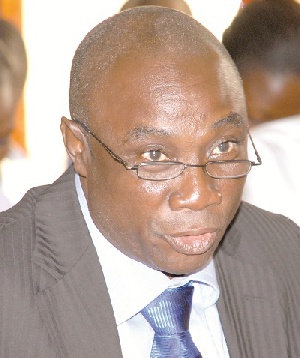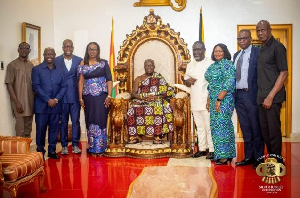- Home - News
- TWI News | TV
- Polls
- Year In Review
- News Archive
- Crime & Punishment
- Politics
- Regional
- Editorial
- Health
- Ghanaians Abroad
- Tabloid
- Africa
- Religion
- Election 2020
- Coronavirus
- News Videos | TV
- Photo Archives
- News Headlines
- Press Release
Business News of Wednesday, 12 June 2013
Source: B&FT
‘No more cheap power’
Ghanaians must realise and accept the fact that the days of cheap power are a thing of the past, Dr. Kwabena Donkor, Chairman of the Parliamentary Select Committee on Mines and Energy, has said, agreeing with power utilities that tariffs must be set to cover costs.
Ghanaians, he said, have been “extremely inefficient” in their use of power, largely because it has been historically cheap.
“The nation must realise that the days of cheap power are no more. So, going forward we have to be efficient in the use of power. Both the Energy Foundation and the Energy Commission must intensify public education aimed at driving efficiency in power usage,” the Member of Parliament for the Pru East Constituency told the B&FT in an interview.
The so-called historically cheap power refers to power from the Akosombo hydroelectric dam, for which the Volta River Authority (VRA) is still paid 4 cents per kilowatt hour, a figure considered too cheap.
The VRA is proposing an increase to 9.2 cents per kilowatt hour to bring it close to recovering it costs, especially because it is increasingly moving to thermal power generation which is considered far more expensive.
Gas, which could have brought down the cost of thermal power generation, has been missing in the generation mix since the West Africa Gas Pipeline was damaged in August 2012.
According to the VRA, the country needs some 300 million standard cubic feet of gas a day, none of which is currently available, to replace the use of crude oil in thermal power generation.
“In 2011, when we had gas, for the whole year we purchased about US$200million of crude oil. Now in 2013, when we have no gas, in the first five months of the year -- not even half of the year -- we purchased US$300million, but the tariffs have not changed. The exchange rate has gone down by about 30%, the price of crude oil is more than US$100; that’s the problem,” Chief Executive of the VRA Kwaku Awotwi told the B&FT recently.
The MP agreed with the VRA, saying: “We are running the VRA down with such unrealistic tariffs.”
A national consensus, according to Dr. Donkor, who is also a former Deputy Minister of Energy, has to be built on the fact that whatever tariff is established must cover the cost of generation.
“A former minister in this country once said that affordability is the language of the opposition. In opposition, he preached affordability from the rooftops. Three months after becoming a minister, he said affordability is the language of the opposition, which means there is a certain realistic centre-ground, and that centre-ground must be populated by all political parties. That is where the national consensus has to be,” Dr. Donkor said.
In reaching a consensus on the cost of power generation vis-à-vis the tariffs that have to be paid, the MP threw a challenge to the Public Utilities Regulatory Commission (PURC) to independently calculate the cost of generation.
“I believe we must not just accept the cost the utilities claim. PURC must have a mechanism of not just auditing but also calculating the cost of generation and comparing their conclusion with what the utilities are saying. Once the PURC ascertains the cost of generation, then we must cover that cost of generation.”
The power utilities, including the Volta River Authority, the Electricity Company of Ghana and the Ghana Grid Company, have put in an application to the PURC calling for more than 200% tariff increments in view of what they say has been the increasing cost of generation.
Although the PURC is yet to fully consider their application, indications are that any review could be substantial, even as consumers -- both domestic and commercial -- have kicked against an increment in tariffs.
The last such review occurred three years ago, leading to an increase of 89% in electricity tariffs.











